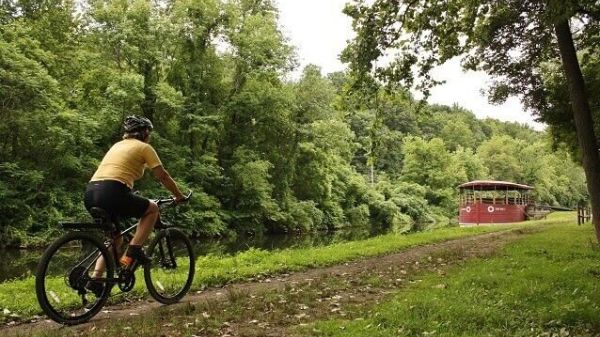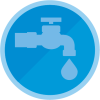Tell the Economic Story of Your Conservation Lands and Trails Without Hiring an Economist—Online/Video Conference Course, Jan. 28-Feb. 25, 2021

Early registration discount extended through 12/31!
Economic impact is an important selling point for funding private land conservation and trails. Reliable economic figures can help coalesce support among local and state officials, who are often gatekeepers to funding for easements and acquisition, maintenance, construction, and expansion. Understanding the range of economic benefits from your land conservation and trails program can also help you expand your circle of allies and partners to include economic developers and the local business community. And it can help build public support.
A tremendous body of studies has substantiated the economic value of trails, trail networks, and conserved wild and working landscapes. These can be useful in helping you make your case, but it’s even more compelling to speak directly about the benefits of your program, your locally conserved lands, your trails.
You don’t need to hire an economist and wade through piles of complex data to understand the economic benefits of your programs. This course will help you learn to paint a broad, research and data-based picture of the economic effects of your trail system or conserved lands—or project the benefits of a proposed trail or conservation program. You will also learn how to tell that story to support advocacy, fundraising, conservation-based economic development, and stronger community relationships. You will learn and adapt a proven approach that engages community resources without hiring an economist, consultant or communications shop.
In this course, you will:
- Adapt Harbinger’s “engaged analysis” approach to outline an economic study for your conservation lands and trails.
- Identify goals and match up data sources, research methods and resources for conducting your study.
- Learn how to assess and describe a wide range of economic and community benefits, and how to create simple, realistic ballpark economic projections.
- Learn the basics of interpreting findings and presenting data to different audiences.
- Review model studies and reports from other areas.
Learn more about this approach to economic analysis on the Understand Your Place page and the Cameron County, Texas, profile on the Write a New Chapter page on the Harbinger website. See the Working Together for the Front report for another example.
WHO IS THIS FOR?
Chambers of Commerce & business alliances • Community & economic development staff • Place-based & conservation organizations • Extension & community development professionals • High school and college students • Downtown & Main Street groups • Business owners & other community leaders
COURSE INSTRUCTOR
Michele Archie, Harbinger principal and lead for collaborative regional economic analyses, economic impact projections, visitor and resident surveys, outdoor recreation assessments, and peer area reviews. Michele has led more than three dozen such studies for national and state parks, World Heritage Sites, trails and other recreational and protected areas across the United States. See Michele's LinkedIn profile.
SESSION DATES AND TIMES
Five weekly sessions
Thursdays - January 28 - February 25, 2021
11 a.m.-12 p.m. PT/2-3 p.m. ET
MORE DETAILS
Sessions available for replay in case you need to miss a session or want to review.
Includes a post-course one-on-one or team consultation session to address your particular situation and needs.
$420 early registration discount until August 31, $525 regular course fee.
Discounts for multiple participants from the same organization:
- $375 each for 2-4 participants
- $325 each for 5 or more


